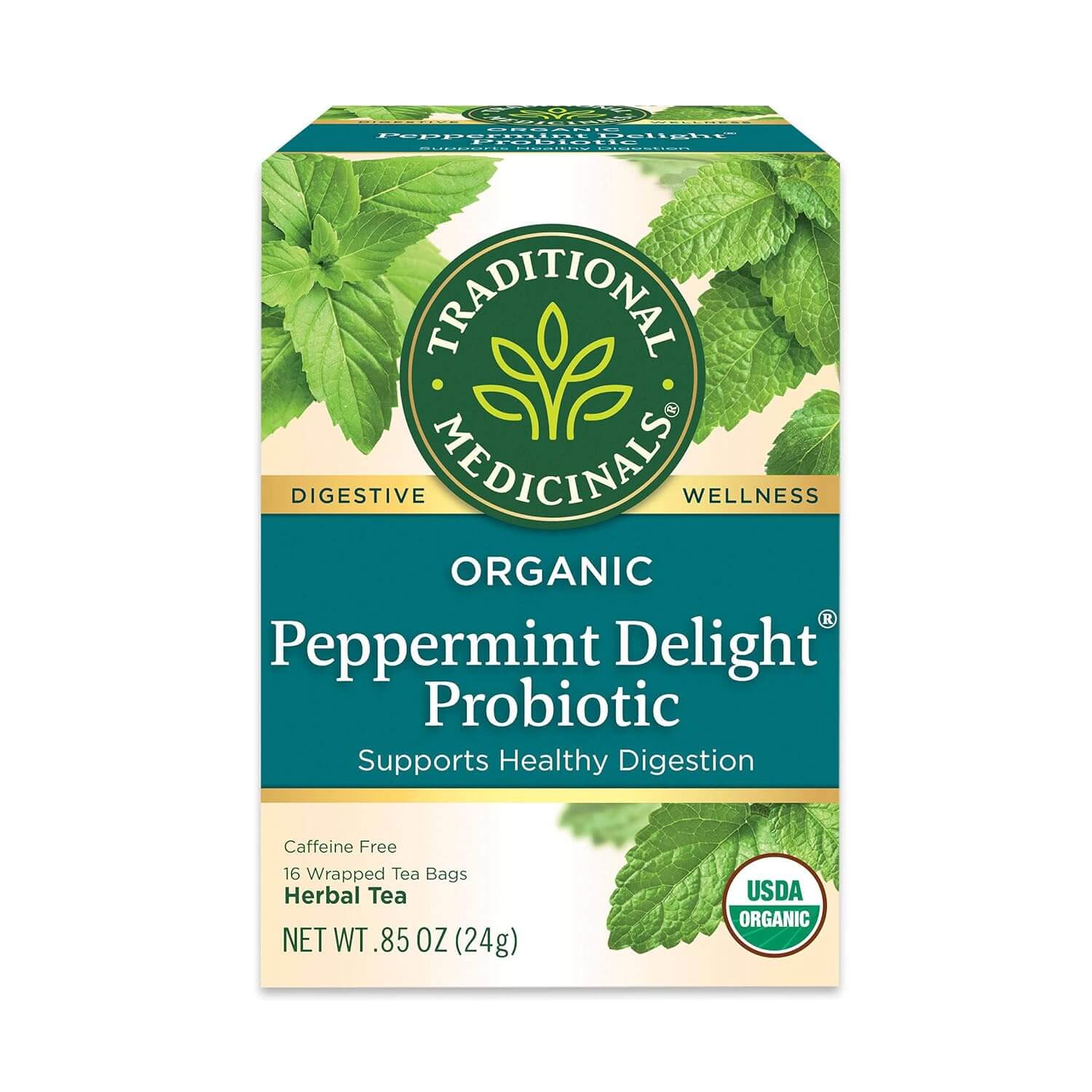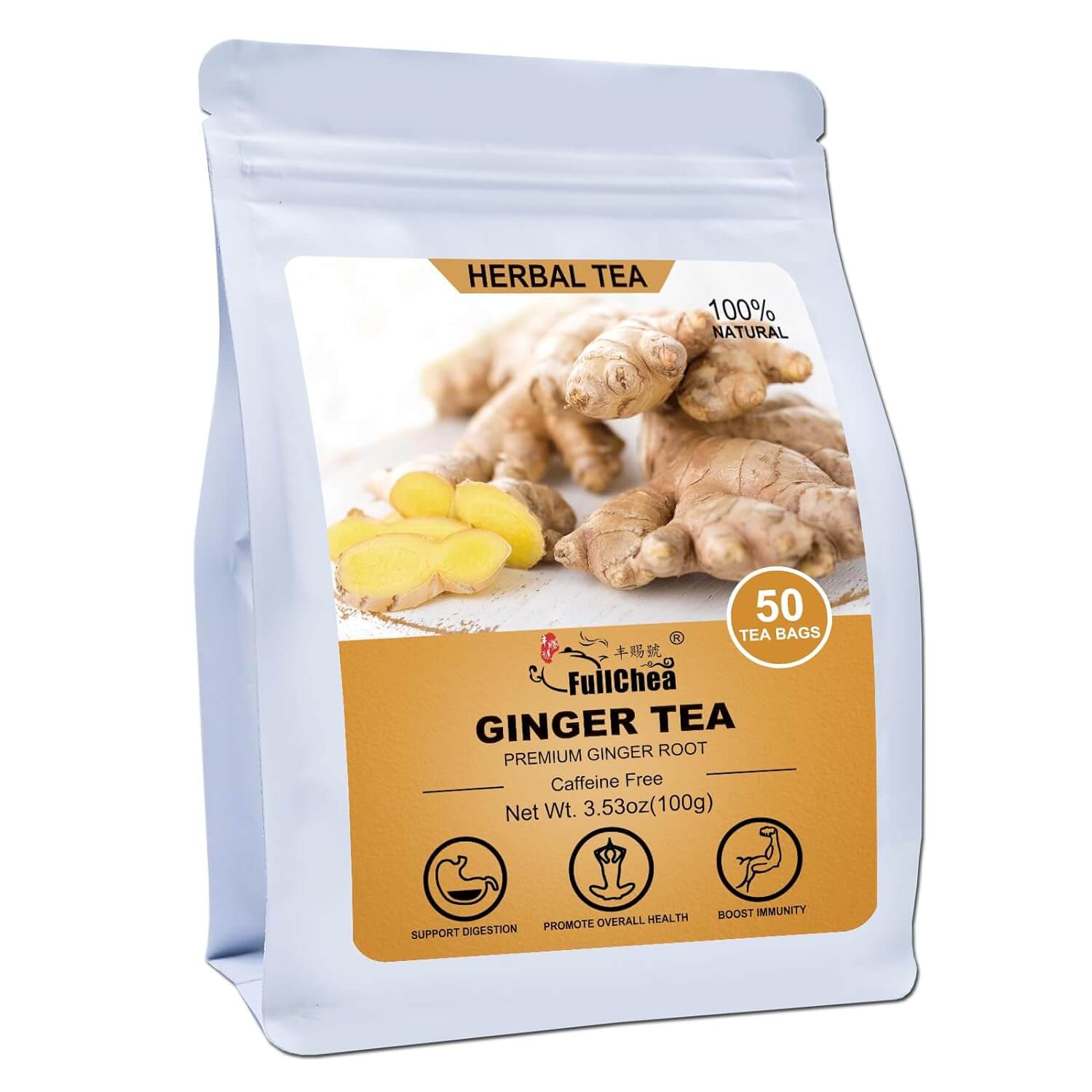
Lavender tea (Photo by LN team on Shutterstock)
Millions of Americans suffer from chronic headaches, yet many seek natural alternatives to over-the-counter pain relievers. While medication certainly has its place, traditional herbal teas have been used for centuries to ease headache pain, reduce inflammation, and promote relaxation. From soothing chamomile to potent peppermint, these expert-recommended herbal teas offer a gentle, natural approach to headache relief that you can easily incorporate into your daily wellness routine. We spoke with experts across the web to identify the seven best teas for headaches.
StudyFinds is a research-driven platform that analyzes and synthesizes expert recommendations from trusted sources. Rather than writing reviews ourselves, we meticulously compile consensus findings from leading industry experts and established publications to save consumers valuable research time. Each article represents hours of analysis across multiple authoritative sources to identify the most consistently recommended choices.
Best Teas for Headaches, Ranked
1. Chamomile

Chamomile tea, also known as “the ultimate relaxation drink,” is a popular herbal infusion that has been enjoyed for centuries. Derived from the daisy-like flowers of the chamomile plant, this soothing beverage is renowned for its calming properties and delicate floral flavor. According to tea experts at Artful Tea and Plum Deluxe, chamomile is a powerful ally in the fight against head pain, working behind the scenes to dial down inflammation throughout your body.
Research highlighted by My Tea Drop shows that chamomile can start working its magic in as little as 30 minutes after your first sip. It’s not just about pain relief either – this wonder tea helps with the whole migraine package, from that queasy feeling in your stomach to that awful sensitivity to light and sound that has you hiding under the covers.
What makes chamomile such a superhero in the tea world is its multi-tasking abilities, as noted by the experts at Plum Deluxe. Think of it as your personal stress-busting companion – it tackles both the physical inflammation that’s making your head pound and the anxiety that might have triggered the headache in the first place. When life gets overwhelming (and let’s be honest, when doesn’t it?), this soothing cup of calm helps take the edge off, potentially stopping a headache in its tracks before it really takes hold.
2. Peppermint

Known for its refreshing and invigorating properties, this aromatic tea is made from the leaves of the peppermint plant, a hybrid of watermint and spearmint. With its distinct minty flavor and numerous health benefits, peppermint tea has become a beloved choice for tea enthusiasts worldwide. The National Headache Institute and Artful Tea both point to this refreshing brew as a go-to solution for tension headaches, offering both pain relief and a much-needed dose of relaxation when your head is pounding.
But what makes this minty miracle worker so effective? According to My Tea Drop, it’s like a natural medicine cabinet in a cup, loaded with magnesium, potassium, vitamins A and C, and those powerhouse menthol oils. When you’re feeling stuffed up and headachey during cold and flu season, peppermint tea works overtime – opening up those stuffy nasal passages and easing sinus discomfort while tackling the head pain itself.
The best part? This isn’t just your average cup of tea. Many blend masters like to mix peppermint with lavender and ginger for an extra therapeutic boost. And while it’s soothing away your headache, it’s also doing double duty – perking up your alertness levels and calming that upset stomach that often tags along with head pain (Artful Tea). Talk about a multitasking superstar!
3. Feverfew

Feverfew tea, derived from the leaves of the feverfew plant, is an herbal infusion that has been used for centuries for its medicinal properties. With its delicate flowers and aromatic leaves, feverfew is not only a beautiful addition to any garden but also a popular choice for herbal tea enthusiasts. As Healthline notes, this isn’t just some trendy new supplement – it’s an herb with serious historical credentials and scientific studies to back up its reputation as a migraine fighter, both for treatment and prevention.
If you’re ready to give this natural remedy a try, the National Headache Institute has a simple recipe that might just change your migraine game: simmer a tablespoon of feverfew leaves in water for 30-60 minutes. Want to kick it up a notch? They suggest turning it into an aromatic power blend by adding some chamomile blooms, lavender flowers, or lemon balm – talk about a therapeutic treat!
The science behind this daisy-family superstar is particularly fascinating, according to My Tea Drop. While researchers are still debating just how powerful feverfew’s effects are, they’ve discovered something pretty cool: this herb appears to block certain chemical compounds that typically trigger those dreaded migraine attacks. Think of it as a bouncer for your brain, keeping the troublemakers that cause head pain from getting in!
4. Willow Bark

Willow bark, also known as Salix alba, is a natural remedy that has been used for centuries to alleviate pain and inflammation. Let’s talk about nature’s original aspirin – willow bark tea, which has been quietly doing its thing for thousands of years before modern pain relievers hit the pharmacy shelves. As Healthline explains, this powerful bark, harvested from various willow tree species, gets its pain-fighting prowess from a compound called salicin. Yes, that’s the same family of compounds that inspired our modern-day aspirin!
You might be wondering how a tree bark became such a headache-fighting superstar. According to Nutratea, it’s earned its reputation as “nature’s aspirin” through its double-action approach: not only does it work as a natural painkiller, but it also tackles inflammation, making it particularly effective against headaches and migraines that bring along inflammatory responses.
But here’s the thing – as My Tea Drop points out, with great power comes great responsibility. While willow bark has been a trusted remedy for centuries, it’s not playing around. Its potency means it’s not for everyone, particularly if you’re on blood thinners or expecting a little one. Think of it as nature’s heavyweight champion – incredibly effective, but best approached with respect and awareness.
5. Ginger

Ginger tea is a popular beverage enjoyed by many around the world for its unique flavor and numerous health benefits. This aromatic and spicy drink is soothing and invigorating and can be enjoyed at any time of the day. According to Artful Tea, this powerhouse herb isn’t just about fighting headaches – it can also help boost your immune system and energize your day while tackling inflammation.
Want to whip up some of this magic at home? The National Headache Institute has a simple recipe that’ll make your kitchen smell amazing: just simmer three or four peeled ginger slices in two cups of water for about 30 minutes. Pro tip: add a drizzle of honey for sweetness or a few lemon slices for an extra burst of freshness. It’s like creating your own spa treatment in a cup!
The real beauty of ginger tea, as highlighted by Grow Create Sip and others, lies in its multi-tasking abilities. While it’s working on your headache pain, it’s also tackling that queasy feeling that often comes with migraines, helping to calm your stress levels, and fighting inflammation throughout your body. Talk about getting more bang for your brew!
6. Lavender

Lavender tea is a soothing and aromatic herbal infusion that has been enjoyed for centuries. Derived from the flowers of the lavender plant, this tea offers a unique and delicate flavor profile that is both refreshing and calming. Think of lavender tea as your cup of calm in a chaotic world. Tuasade says it’s actually a powerful trio of soothing, relaxing, and pain-relieving properties all wrapped up in one fragrant package, making it particularly effective for those headaches that creep up when stress decides to pay a visit.
The science behind this purple powerhouse is particularly fascinating. According to Plum Deluxe, lavender works in a way that’s similar to prescription relaxants, helping to dial down anxiety and tension naturally. This might explain why a 2012 study found that even just inhaling lavender essential oil could effectively tackle migraine headaches – talk about flower power!
But what makes lavender truly special, as Artful Tea points out, is its versatility in the wellness world. While it’s a top contender in the headache-fighting arena, it’s also been a trusted ally in battling everything from everyday anxiety to depression. Think of it as nature’s chill pill, offering relief for both body and mind in every steaming cup.
7. Turmeric

Turmeric tea, also known as golden milk, has gained popularity in recent years for its numerous health benefits. This vibrant yellow beverage is made by infusing turmeric, a spice commonly used in Indian cuisine, with hot water or milk. As Very Well Health explains, the magic behind this vibrant spice lies in curcumin, the compound that not only gives turmeric its signature orange glow but also packs a serious punch when it comes to fighting inflammation and migraine symptoms.
This isn’t just another pretty spice in your cabinet. According to Artful Tea, turmeric brings a distinctive woody, earthy flavor profile to your cup, playing nicely with other spices to create a warming brew that’s as delicious as it is therapeutic. Think of it as the sophisticated cousin in the tea family – one that dresses in gold and knows how to make an entrance!
The excitement around turmeric isn’t just hype either. As Grow Create Sip points out, researchers are increasingly intrigued by curcumin’s potential in migraine treatment, suggesting that your daily cup of golden tea might be more than just a cozy ritual – it could be your new natural ally in the fight against migraine side effects. Who knew something so beautiful could also be such a powerful healer?
Sources:
Note: This article was not paid for nor sponsored. StudyFinds is not connected to nor partnered with any of the brands mentioned and receives no compensation for its recommendations. This article may contain affiliate links in which we receive a commission if you make a purchase.







